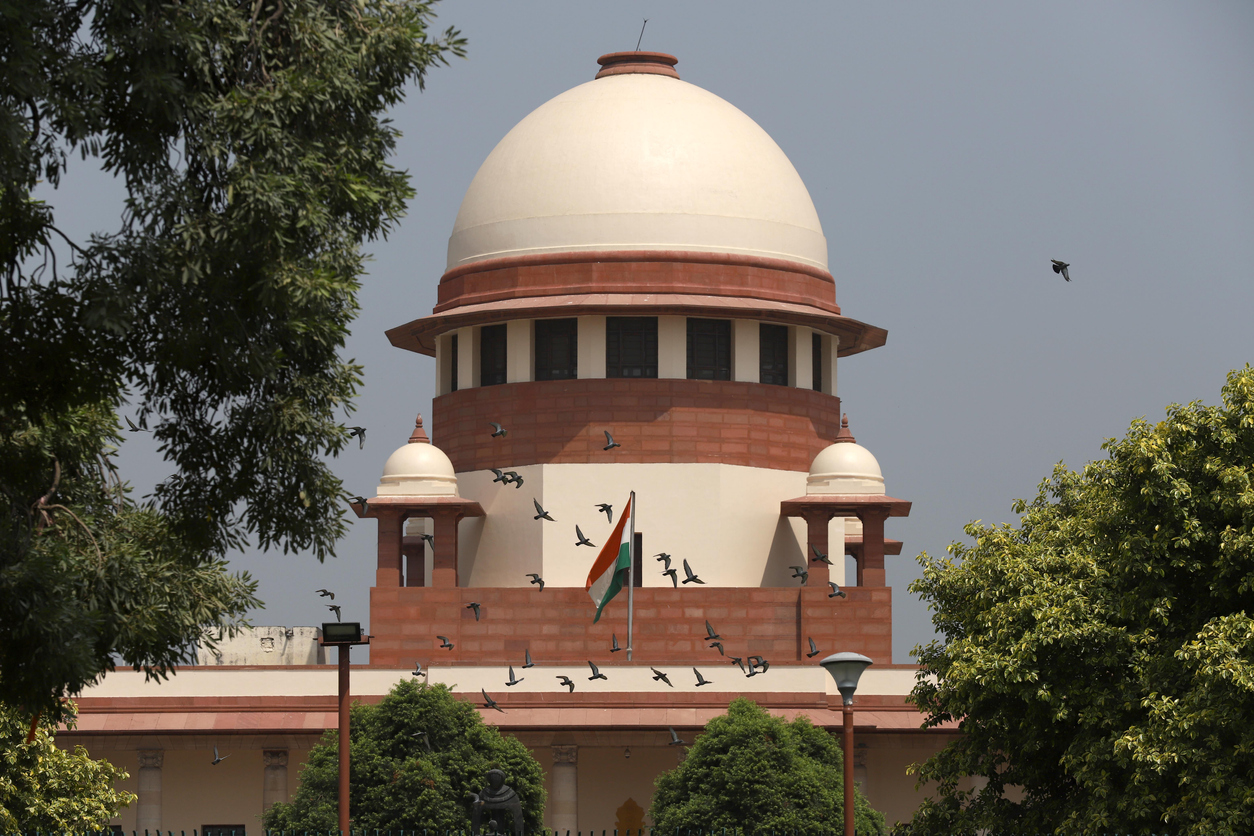On 4 October 2019, the Hon’ble Supreme Court held that section 238 of the Insolvency and Bankruptcy Code, 2016 ("IBC") has an overriding effect over the provisions of the Tea Act, 1953 ("Tea Act"). Accordingly, the prior approval of the Central Government is not required, under the Tea Act, for filing an application under IBC for the commencement of corporate insolvency resolution process ("CIRP"), against a tea company.
In the present case, A.J. Agrochem (operational creditor) filed an application, under section 9 of the IBC, against Duncans Industries Limited (corporate debtor) before the National Company Law Tribunal ("NCLT") on account of default by the corporate debtor in payment of dues against goods supplied by the operational creditor.
The NCLT, however, dismissed the application of the operational creditor on the ground that the operational creditor did not comply with the requirement of section 16G(1)(c) of the Tea Act. As per section 16G(1)(c) of the Tea Act in case the management of, or a tea undertaking or tea unit owned by, a company has been taken over by the Central Government, then no proceeding for winding up of such company or for the appointment of receiver in respect thereof shall lie in any court except with the prior approval of the Central Government.
The operational creditor filed an appeal before the National Company Law Appellate Tribunal ("NCLAT"), wherein the NCLAT held that prior approval of the Central Government under section 16G(1)(c) of the Tea Act is not required for an application filed under section 9 of IBC. The judgement of the NCLAT was based on the ground that section 9 of IBC occupies a different field than section 16G(1)(c) of the Tea Act. Since section 16(G)(1)(c) relates to winding up whereas the application filed under section 9 of IBC is not a proceeding for winding-up but for initiation of CIRP to ensure revival and continuation of a corporate debtor, prior approval of the Central Government is not required.
The Hon’ble Supreme Court upheld the judgement of the NCLAT and observed that the proceedings under section 9 of IBC shall not be limited and/or restricted to winding up and/or appointment of the receiver only. The winding up/liquidation of a company shall be the last resort only when CIRP fails. Therefore, CIRP cannot be equated with winding up proceedings.
The Apex Court held that section 238 of IBC (which is an over-riding clause), shall be applicable and the provisions of IBC shall have an overriding effect over any other law including the Tea Act.
Payment of outstanding tax liabilities for implementation of scheme of amalgamation
(Ad2Pro Media Solutions Pvt. Ltd. v. Regional Director (SER), Ministry of Corporate Affairs & Ors., Company Appeal (at) No. 98 of 2019)
The National Company Law Appellate Tribunal ("NCLAT"), vide its order dated 25 September 2019, reiterated the well settled principle that:
“Once a scheme has been sanctioned by a Tribunal…nothing precludes the Tax Authorities from recovering its legitimate and recoverable outstanding tax dues from the Transferor or the Transferee Company, as provided in the scheme."
Accordingly, the NCLAT modified the scheme of arrangement ("Scheme"), which was approved by the National Company Law Tribunal, Bangalore ("NCLT") subject to the condition that Ad2Pro Media Solutions Pvt. Ltd. (the "Transferor Company") pays the entire outstanding liabilities towards income-tax and service tax before implementation of the Scheme (which provided, inter-alia, for amalgamation of the Transferor Company with Ad2Pro Media Solutions Pvt. Ltd. (the "Transferee Company")).
In the present case, the Transferor Company had certain outstanding liabilities towards income tax and service tax. However, the demand raised by the tax authorities was challenged by the Transferor Company before the competent appellate tribunal. The NCLT, while approving the Scheme, directed the Transferor Company to pay the entire amount of outstanding tax liabilities as per the demands raised by the tax authorities. As a result of this condition imposed by the NCLT, the approved Scheme could not have been made effective till the time the Transferor Company made the payment of the outstanding tax dues to tax authorities.
The NCLAT observed that the Scheme approved by the NCLT provided that post amalgamation all the tax assessment proceedings and appeals shall be continued with the Transferee Company and all or any dues payable in accordance with law shall be paid by the Transferee Company. The NCLAT also noted that the Transferor Company and the Transferee Company had undertaken to satisfy all demands emanating from, and raised by, the competent tax authorities depending upon the outcomes of such proceedings. In view of this, the NCLAT modified the Scheme and held that the approved Scheme shall be implemented without insisting upon compliance of demands of tax authorities.
DPIIT issues Press Note 4 of 2019 series approving reforms in FDI policy
On 18 September 2019 the Department for Promotion of Industry and Internal Trade (“DPIIT”) issued Press Note 4 of the 2019 series approving the Cabinet proposal (announced in the meeting, held on 28 August 2019), for review of the FDI policy in relation to various reforms. The reforms include opening new sectors to FDI and liberalizing FDI related norms in sectors already open for foreign investment. The reforms announced vide the press note no. 4 are:
- permitting 100% FDI, under the automatic route, in (i) contract manufacturing and (ii) 100% FDI under automatic route for sale of coal, for coal mining activities including associated processing infrastructure. The term “associated processing infrastructure” is defined to include coal washery, crushing, coal handling and separation (magnetic and non-magnetic).
- 26% FDI, under government route, is now permitted for uploading/ streaming of News & Current Affairs through Digital Media.
- easing of FDI related norms in single brand retail trading (SBRT). The following relaxations/amendments have been announced to the policy relating to FDI in SBRT sector:
- all procurements made from India by the SBRT entity for the relevant single brand shall be counted towards local sourcing, irrespective of whether the goods procured are sold in India or exported. Further, the current cap of considering exports for 5 years only shall be removed,
- The ‘sourcing of goods from India for global operations’ can be done directly by the entity undertaking SBRT or its group companies (resident or non-resident), or indirectly by them through a third party under a legally tenable agreement,
- the entire sourcing from India, and not just the year on year incremental value for global operations shall be considered towards local sourcing requirement, and
- retail trading through online trading can be undertaken prior to the opening of brick and mortar stores, subject to the condition that the SBRT entity opens brick and mortar stores within two (2) years from the start date of online retail.
The Press Note no. 4 shall come into effect from the date of the relevant foreign exchange management (FEMA) notification. The relevant (FEMA) notification is yet to be issued.
Corporate tax rates reduced
On 20 September 2019, the Finance Minister Ms. Nirmala Sitharaman slashed the corporate tax by almost 10%. This is the biggest reduction in 28 years done with an objective to bring corporate tax rates at par with other Asian countries such as China and South Korea.
Highlights
- Corporate tax rate has been slashed to 22% (which was 30% earlier) for domestic companies not availing any incentives/ exemptions. Effective tax rate for such companies now stands at 25.17% (which was 34.94% earlier) including cess and surcharge. Also, such companies shall not be required to pay minimum alternate tax (MAT).
- New domestic companies incorporated on or after 1 October 2019, making fresh investment in manufacturing can pay income-tax at a rate of 15% (as against the earlier rate of 25%). This benefit is available to companies which do not avail any exemption/incentive and commences their production on or before 31 March 2023. Their effective tax rate will be 17.01% inclusive of surcharge and cess (as against the earlier rate of 29.12%). These companies, too, will not be required to pay MAT.
- A company which does not opt for the concessional tax regime and avails the tax exemption/incentive shall continue to pay tax at the pre-amended rate. However, these companies can opt for the concessional tax regime after the expiry of their tax holiday/exemption period. After the exercise of the option, they shall be liable to pay tax at the rate of 22% and the option once exercised cannot be subsequently withdrawn. Further, in order to provide relief to companies which continue to avail exemptions/incentives, the rate of MAT has been reduced from existing 18.5% to 15%.
- In order to stabilise the flow of funds into the capital market, it is provided that enhanced surcharge introduced by the Finance (No.2) Act, 2019 shall not apply on capital gains arising on sale of equity share in a company or a unit of an equity oriented fund or a unit of a business trust liable for securities transaction tax (STT), in the hands of an individual, Hindu Undivided Family (HUF), Association of Persons (AOP), Body of Individuals (BOI) and Artificial Juridical Person (AJP).
- The enhanced surcharge shall also not apply to capital gains arising on sale of any security including derivatives, in the hands of Foreign Portfolio Investors (FPIs).
- In order to provide relief to listed companies which have already made a public announcement of buy-back before 5 July 2019, it is provided that tax on buy-back of shares in case of such companies shall not be charged.
- The Government has also decided to expand the scope of CSR 2% spending. Now CSR 2% fund can be spent on incubators funded by Central or State Government or any agency or Public Sector Undertaking of Central or State Government, and, making contributions to public funded Universities, IITs, national laboratories and autonomous bodies (established under the auspices of ICAR, ICMR, CSIR, DAE, DRDO, DST, Ministry of Electronics and Information Technology) engaged in conducting research in science, technology, engineering and medicine aimed at promoting Sustainable Development Goals (SDGs).
- The total revenue foregone for the reduction in corporate tax rate and other relief estimated at INR 1,45,000 crore (approximately USD 21.1 billion).
Indian Insurance Companies (Foreign Investment) Amendment Rules, 2019
On 2 September 2019, the Ministry of Finance issued the Indian Insurance Companies (Foreign Investment) Amendment Rules, 2019 to further amend the Indian Insurance Companies (Foreign Investment) Rules, 2015. In terms of these amendment rules:
- There shall be no cap on foreign equity investment in companies which are registered as insurance intermediaries.
- The foreign direct investment shall be allowed under the automatic route, subject to verification by the Insurance Regulatory Development Authority (“Authority”) and the foreign investment in intermediaries or insurance intermediaries shall be governed by the same terms as provided under rules 7 and 8 of the Indian Insurance Companies (Foreign Investment) Rules, 2015.
- The insurance intermediary that has majority shareholding of foreign investors shall be required to comply with the following conditions:
(i) It should be incorporated as a limited company under the provisions of the Companies Act, 2013;
(ii) At least one from among the Chairman of the Board of Directors or the Chief Executive Officer or Principal Officer or Managing Director of the insurance intermediary shall be a resident Indian citizen;
(iii) It shall take prior permission of the Authority for repatriating dividend;
(iv) It shall bring in the latest technological, managerial and other skills;
(v) It shall not make payments to the foreign group or promoter or subsidiary or interconnected or associate entities beyond what is necessary or permitted by the Authority;
(vi) It shall make disclosures in the formats to be specified by the Authority of all payments made to its group or promoter or subsidiary or interconnected or associated entities;
(vii) The composition of the Board of Directors and key management persons shall be as specified by the concerned regulators.
Green Channel clearance for Merger & Acquisitions
On 19 August 2019, the Competition Commission of India (“CCI”) introduced a “Green Channel” clearance for Merger & Acquisitions which will be effective from 15 August 2019, wherein an automatic system of approval for combinations under Green Channel has been introduced in order to make the M&A filings for approvals faster. Under this process, the combination is deemed to have been approved upon filing the notice in the prescribed format, however, if the CCI later finds that the combination does not fall under the green channel mechanism, the notice given and the deemed approval granted shall be void and the CCI would deal with such combination in accordance with the provisions of the Competition Act, 2002. The Green Channel is aimed to sustain and promote a speedy, transparent and accountable review of combination cases, strike a balance between facilitation and enforcement functions, create a culture of compliance and support economic growth.




















